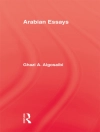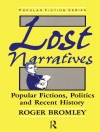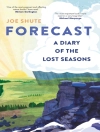An examination of medieval historican writings through the prism of violence.
The concept of medieval historiography as ‘usable past’ is here challenged and reassessed. The contributors’ shared claim is that the value of medieval historiographical texts lies not only in the factual information the texts contain but also in the methods and styles they use to represent and interpret the past and make it ideologically productive. Violence is used as the key term that best demonstrates the making of historical meaning in the Middle Ages, through the transformation of acts of physical aggression and destruction into a memorable and usable past.
The twelve chapters assembled here explore a wide range of texts emanating from throughout the francophone world. They cover a range of genres (
chansons de geste, histories, chronicles, travel writing, and lyric poetry), and range from the late eleventh to the fifteenth century. Through examination of topics as varied as rhetoric, imagery, humor, gender, sexuality, trauma, subversion, and community formation, each chapter strives to demonstrate how knowledge of the medieval past can be enhanced by approaching medieval modes of historical representation and consciousness on their own terms, and by acknowledging – and resisting – the desire to subject them to modern conceptions of historical intelligibility.
Noah D. Guynn is Associate Professor of French at the University of California, Davis; Zrinka Stahuljak is Associate Professor of French and Comparative Literature at the University of California, Los Angeles.
Contributors: Noah D. Guynn, Zrinka Stahuljak, James Andrew Cowell, Jeff Rider, Leah Shopkow, Matthew Fisher, Karen Sullivan, David Rollo, Deborah Mc Grady, Rosalind Brown-Grant, Simon Gaunt
Jadual kandungan
Historicity, Violence, and the Medieval Francophone World:
Mémoire Hystérisée – Noah D. Guynn
Historicity, Violence, and the Medieval Francophone World:
Mémoire Hystérisée – Zrinka Stahuljak
Violence, History, and the Old French Epic of Revolt – Andrew Cowell
Rhetoric, Providence, and Violence in Villehardouin’s
La conquête de Constantinople – Noah D. Guynn
Vice, Tyranny, Violence, and the Usurpation of Flanders (1071) in Flemish Historiography from 1093 to 1294 – Jeff Rider
Marvelous Feats: Humor, Trickery, and Violence in the
History of the Counts of Guines and Lords of Ardres of Lambert of Ardres – Leah Shopkow
Dismembered Borders and Treasonous Bodies in Anglo-Norman Historiography – Matthew Fisher
The Good, the Bad, and the Beautiful: Violence in the
Canso de la Crozada – Karen Sullivan
Political Violence and Sexual Violation in the Work of Benoît de Sainte-Maure – David Rollo
The Sexuality of History: The Demise of Hugh Despenser, Roger Mortimer, and Richard II in Jean Le Bel, Jean Froissart, and Jean d’Outremeuse – Zrinka Stahuljak
‘Guerre ne sert que de tourment’: Remembering War in the Poetic Correspondence of Charles d’Orléans – Deborah Mc Grady
Commemorating the Chivalric Hero: Text, Image, Violence, and Memory in the
Livre des faits de messire Jacques de Lalaing – Rosalind Brown-Grant
Coming Communities in Medieval Francophone Writing about the Orient – Simon Gaunt
Mengenai Pengarang
Rosalind Brown-Grant is Professor of Late Medieval French Literature at the University of Leeds.












